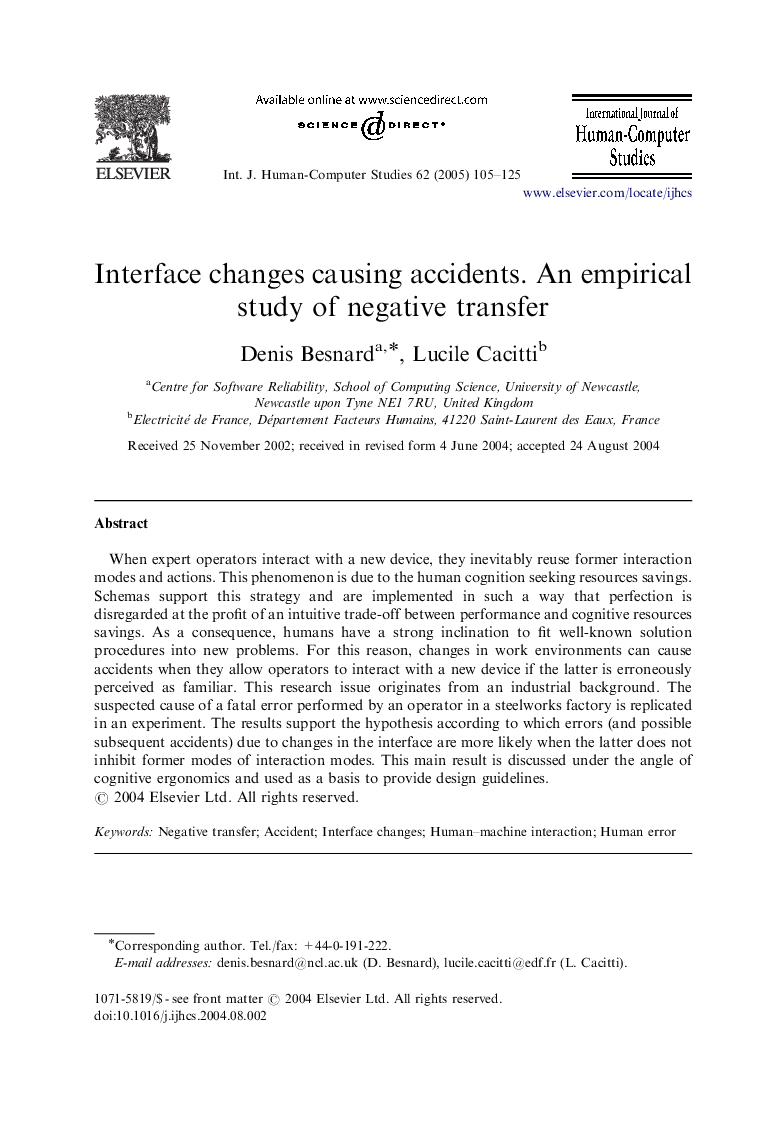| کد مقاله | کد نشریه | سال انتشار | مقاله انگلیسی | نسخه تمام متن |
|---|---|---|---|---|
| 9652543 | 1439092 | 2005 | 21 صفحه PDF | دانلود رایگان |
عنوان انگلیسی مقاله ISI
Interface changes causing accidents. An empirical study of negative transfer
دانلود مقاله + سفارش ترجمه
دانلود مقاله ISI انگلیسی
رایگان برای ایرانیان
کلمات کلیدی
موضوعات مرتبط
مهندسی و علوم پایه
مهندسی کامپیوتر
هوش مصنوعی
پیش نمایش صفحه اول مقاله

چکیده انگلیسی
When expert operators interact with a new device, they inevitably reuse former interaction modes and actions. This phenomenon is due to the human cognition seeking resources savings. Schemas support this strategy and are implemented in such a way that perfection is disregarded at the profit of an intuitive trade-off between performance and cognitive resources savings. As a consequence, humans have a strong inclination to fit well-known solution procedures into new problems. For this reason, changes in work environments can cause accidents when they allow operators to interact with a new device if the latter is erroneously perceived as familiar. This research issue originates from an industrial background. The suspected cause of a fatal error performed by an operator in a steelworks factory is replicated in an experiment. The results support the hypothesis according to which errors (and possible subsequent accidents) due to changes in the interface are more likely when the latter does not inhibit former modes of interaction modes. This main result is discussed under the angle of cognitive ergonomics and used as a basis to provide design guidelines.
ناشر
Database: Elsevier - ScienceDirect (ساینس دایرکت)
Journal: International Journal of Human-Computer Studies - Volume 62, Issue 1, January 2005, Pages 105-125
Journal: International Journal of Human-Computer Studies - Volume 62, Issue 1, January 2005, Pages 105-125
نویسندگان
Denis Besnard, Lucile Cacitti,